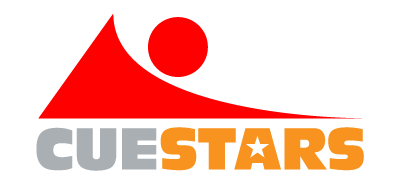How Cuestars started
CUESTARS can trace its history back to a Saturday morning junior section at Andover Snooker Club in the mid-1980s.
But the first seed was actually sown when a 13-year-old goalkeeper and keen cricketer grew “frustrated” with team games in 1979.

It was then that John Hunter (pictured many many years ago!) first picked up a snooker cue. However, he did not play on full-sized tables until four years later at the Berkshire Club, in Windsor, where future world champion Steve Davis and his dad used to practise and which was owned by snooker commentator Jack Karnehm and table manufacturer Bill Hillman.
He joined in the January and remarkably made his first century in the November.
“The standard there was fantastic,” recalled Hunter. “It rubs off on you.
“I lived in that place. In those 11 months, I probably crammed more snooker in than other people do in three or four years.
“I just loved it. If you find something you do well, you just want to do it more and more. I was obsessive about trying to make my highest break – too obsessive, really.
“I should’ve focused a bit more on winning rather than break building,” he added ruefully.
Mentored by Mel Turner, Hunter won a Schweppes-sponsored national junior championship (where a certain Stephen Hendry was a semi-final casualty) at the age of 18.
“It all happened so fast,” he said.
Around 1985, Hunter’s dad, Ian, who was formerly in the building trade, bought Andover Snooker Club, which was later sold to Henry West, who used to manage some of the top players.
“I started a kids club on Saturday mornings because I wanted to give something back,” said Hunter.
Before long, he had initiated junior sections at Stonehenge, Durrington, Winchester and Aldershot. The first triangular match was between Winchester, Stonehenge and Andover in the late 1980s. And that was the start of the South of England circuit as we know it today.
Hunter, now 48, recalled: “I started to hold team competitions between the different kids clubs and then eventually I started to form a competition structure, which would be on Sundays. Because the junior side was so good, grown-up players wanted the same.”
Cuestars was set up with a government enterprise allowance grant. It grew to between 15-20 sections helped by Dave Norman and Ron Knight. When Knight retired, Norman bought Stoke Snooker Club from him.
Hunter said: “They were very helpful. Dave, at Swindon, was fantastic. And Ron did a brilliant kids club in Gosport.
“I can’t remember what made me think of the name. I had a friend who helped me with the logo.”
Although he loves to see Cuestars players progress and compete nationally and internationally (he helped Ben Harrison when he was 12-years-old), Hunter perhaps derives more pleasure from just seeing improvement in young players of all abilities.
“It’s all the kids – the ones who didn’t have a lot of ability – that became quite good,” he explained.
“They might have been a bit rough and ready when they signed up to it but they got on well in life. You feel like you’ve contributed a little bit to that.”
He tells a story about going to the bank to ask for a loan: “The person stood in front of me was in his 30s. He’d lost more of his hair than I had. He said ‘I used to be in your kids club’. And there I am sat there begging him for a loan.”
And did he give you the loan?
“He gave me a load of hassle, to be quite honest,” laughed Hunter.
Reflection on his near 30 years running Cuestars, he said: “I get a buzz; I enjoy it. I’m a snooker player myself. I was a kid who played snooker so I understand what makes things exciting. I’m constantly thinking of things that will capture their interest the way it captured my interest when I was younger.
“Not only did it give them a skill for playing snooker, it obviously helped their skills in life. I’ve always liked to organise things. Cuestars hasn’t been about me, it’s been about the people.
“But I can’t say I’m not proud,” which is about as much as you’ll ever get from a man who does not like to blow his own trumpet.
Report by Tim Dunkley.
